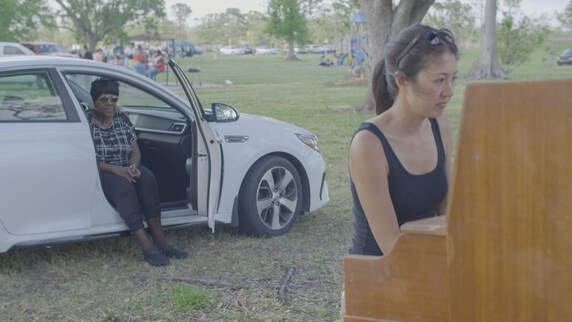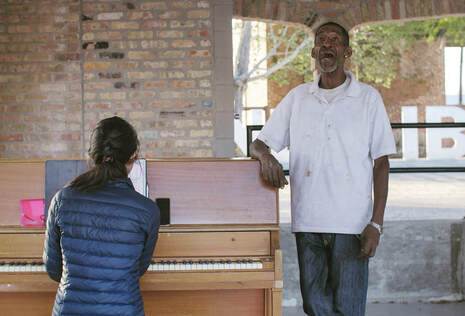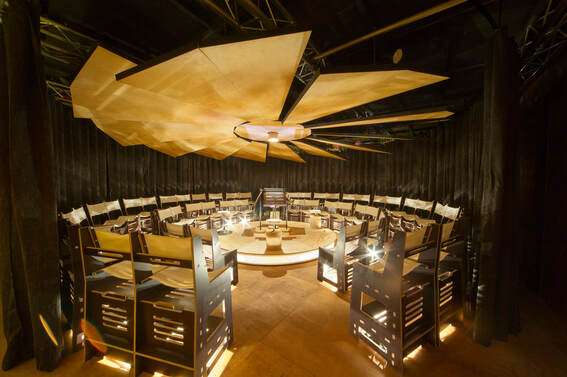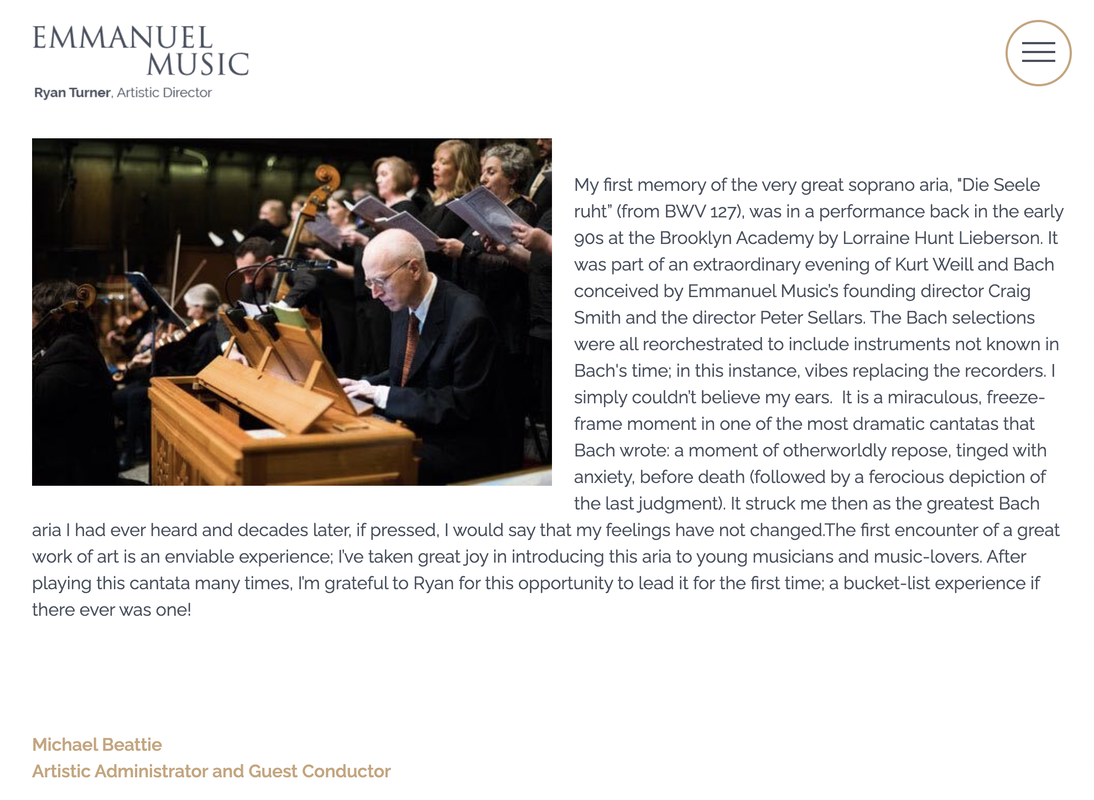|
The musician-led initiative that totally captivated my imagination this spring was pianist Miki Sawada's Gather Hear tour of Louisiana. This was her fifth such tour, carting an upright piano in a moving van, but the daringly unique twist this time was that she did not pre-plan any performance venues. Rather, she allowed the tour to unfold based on conversations with ordinary (and fascinating) people that she met along the way. I remember being inspired by cellist Matt Haimovitz's Listening Room tour in 2002, and dreaming up a potential road trip challenge, crossing the country from living room to living room with a solo Bach program and eventually making it all the way to San Francisco from Boston. I figured that the even greater adventure would have been to rely on house concert guests to introduce me to the next host in the next location. I never followed through on that idea, and I'm so inspired by Miki's bravery and tenacity, not to mention her artistry. And her storytelling and promotional skills, too! See her photos and videos here. I wish there was a way to better share the email updates that she provided across the timeline of the tour. Here's one excerpt: We continued along the southern Louisiana coast through the land of swamps and bayous (with an alligator sighting right next to a strip mall), to the Chitimacha Reservation. The Chitimacha are one of four federally recognized tribes in Louisiana. I walked up to all of the tribal buildings, hoping to maybe play at their school, but all were deserted. I even wandered into the maze of their tribe-operated casino to ask for intel, and was told that the day after Easter is a holiday and everyone is hanging out at home. No luck.
0 Comments
"Commissioned by ANAM and designed by Melbourne-based BB3, part of Bluebottle, the 'concert hall in a box' accommodates an audience seated in two circles around an imperceptibly rotating central stage. No audience member is more than two meters from the performers."
Read the entire article here. “We believe music-making should be radically participatory, driven by the audience as much as the musicians.” So impressed with how, throughout the pandemic, the work has only deepened and matured at the Iris Music Project. Founder and cellist (and Community MusicWorks Fellowship Program alum) Lauren Latessa shares much, much more that's worth listening to in this recently recorded conversation for Charles E. Smith Life Communities in Rockville, Maryland. I'm struck, listening to this conversation, by how frank Igor Levit is about making music being essential to his own mental health ("stability") during the first wave of the pandemic. A reminder to me that, while the act of sharing music so generously may be perceived as altruism, there is clear mutual benefit, as there should be. After all, how can such a generative, creative act as making music not provide important intangible rewards, and foremost to the musician(s) involved? "The fact that I was able to play...and I couldn't care less whether there are two people or 35,000. Just that gave me a great deal of mental stability. So it went both ways: it was for the people, and very much for myself." "This is an exhausting time, and yes, I am tired...[making music] is holding me together. This feeling, even for me, is new. Since this year [2020], it really became mentally, physically--health-wise--absolutely existential... just to press down the keys and to hear something that comes out. This gives me hope, it gives me stability. And on the other side, there are the people who actually felt the same." |
AboutSharing student project documentation and, more recently, my own. Archives
June 2022
Categories |




 RSS Feed
RSS Feed
